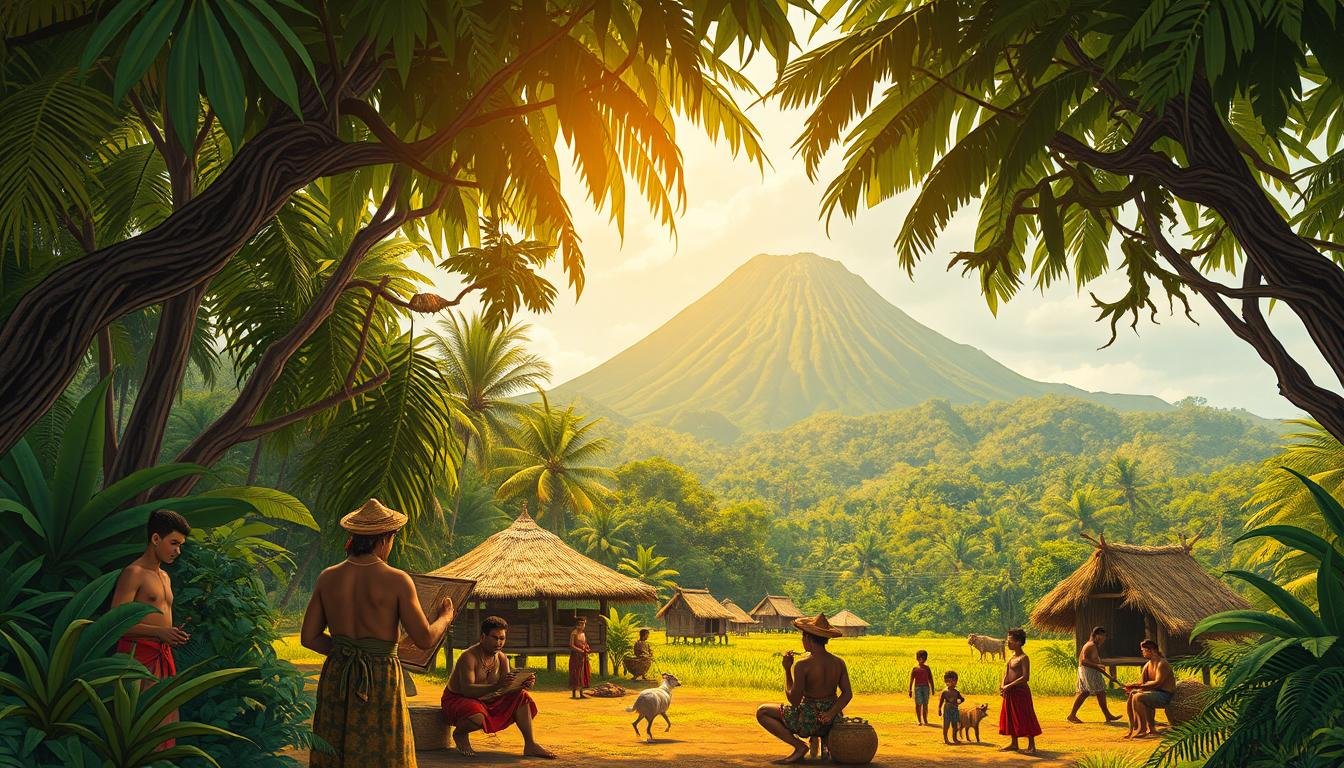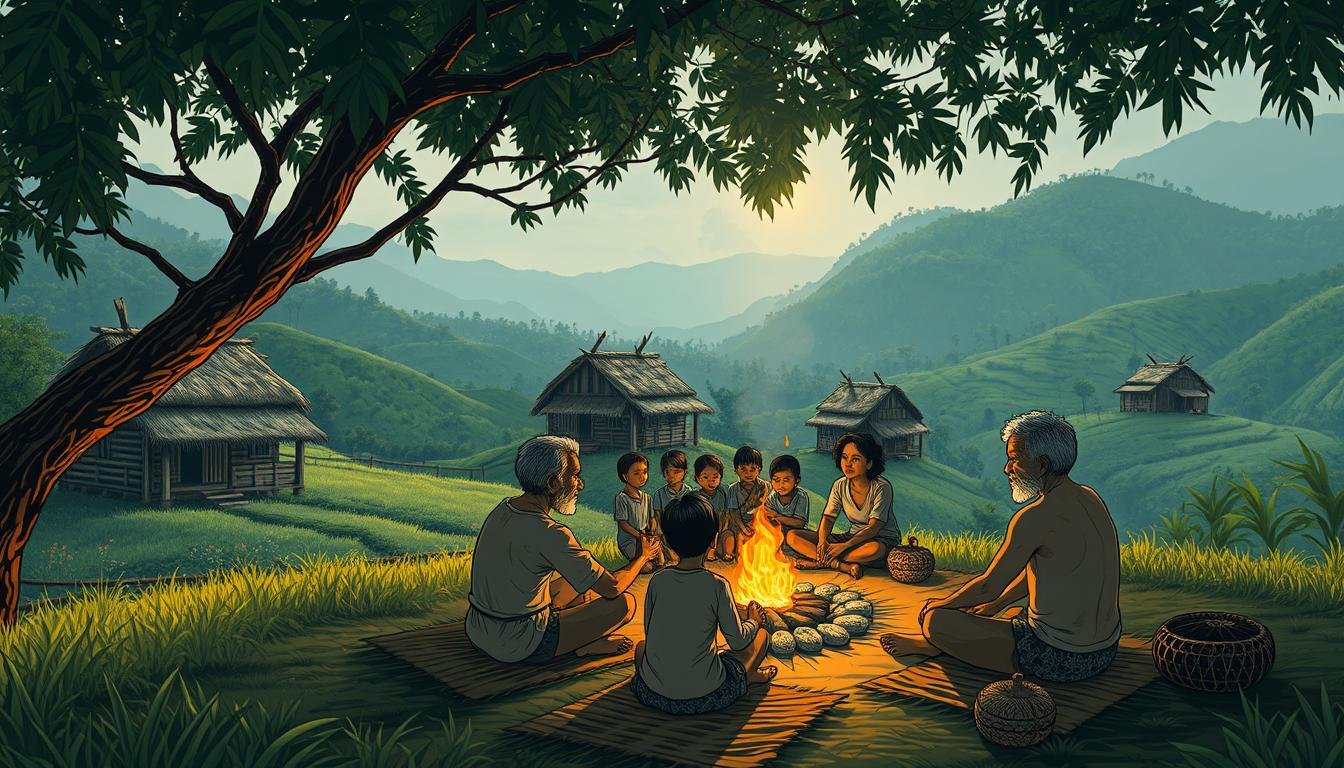Did you know that the oldest known wooden boat fragments in the Philippines date back to 320 AD? This discovery highlights the remarkable craftsmanship of pre-colonial Filipinos, who excelled in creating functional yet artistic objects. Long before modern tools, these early artisans used their skills to shape wood, stone, and other materials into works that…
Pre-Colonial (900–1560)
Pre-Colonial Philippine Knowledge of Astronomy and Navigation
Did you know that pre-colonial Filipinos navigated vast oceans using only the stars and their understanding of the solar system? Long before modern technology, indigenous communities in the Philippines developed sophisticated methods to observe the sky. These practices were not just for navigation but also guided their agricultural cycles, fishing seasons, and daily lives. For…
Ancient Filipino Beliefs About the Soul and the Spirit World
Did you know that in traditional Filipino culture, a person could have multiple souls? For instance, the Ifugao people believe in two souls—one in the eyes and one in the breath. This unique view highlights the deep connection between the body and the spiritual realm in Filipino beliefs. In many indigenous Filipino cultures, the soul…
The Role of the Family in Pre-Colonial Philippine Society
Did you know that in pre-colonial Philippines, the family was not just a social unit but the backbone of entire communities? It played a pivotal role in shaping the cultural, economic, and political landscape of the time. Unlike modern households, early Filipino families were deeply interconnected, often functioning as extended groups that provided care, security,…
The Significance of Rivers and Waterways in Pre-Colonial Philippines
Did you know that over 70% of early settlements in the Philippines were established near freshwater sources? These natural lifelines, including rivers and lakes, played a pivotal role in shaping the archipelago’s pre-colonial societies. They provided not only drinking water but also fertile lands for agriculture, making them the heart of thriving communities. Rivers are…
Pre-Colonial Philippine Concepts of Leadership and Governance
Did you know that long before modern management theories, the Philippines had a well-structured system of leadership and governance? The barangay, a small community led by a leader known as the datu, was the cornerstone of pre-colonial society. These communities, often consisting of a few hundred individuals, thrived on a hierarchical structure that emphasized culture,…
Ancient Filipino Understanding of Medicine and Herbal Remedies
Did you know that the Philippines is home to over 1,500 known medicinal plants? This rich biodiversity has played a crucial role in shaping the country’s traditional healing practices. Long before modern science, ancient Filipinos viewed health as a blend of art and science, relying on nature’s bounty to treat ailments. Traditional Filipino healers, known…
Pre-Colonial Philippine Diplomacy and Alliances
Did you know that the Philippines engaged in trade with China as early as 982 AD? This early interaction highlights the rich history of pre-colonial diplomacy in the region. Long before modern international relations, the Philippines was already building alliances and fostering connections with neighboring states. Pre-colonial Philippine diplomacy was rooted in cultural practices and…
The Role of the Community in Pre-Colonial Philippine Life
Did you know that pre-colonial Philippine societies were composed of 30 to 100 families, tightly knit through shared traditions and governance? These groups, often called barangays, were the backbone of social and cultural life long before foreign influences arrived. The term “community” traces its roots to the Old French word communeté and the Latin communitas,…
The Significance of Oral Traditions in Preserving Pre-Colonial History
Did you know that over 1,500 epic poems were recorded from oral performances in the 1930s alone? These stories, passed down through generations, have played a crucial role in preserving pre-colonial history and cultural values. Oral traditions are more than just tales; they are a system of beliefs and behaviors that connect communities to their…










